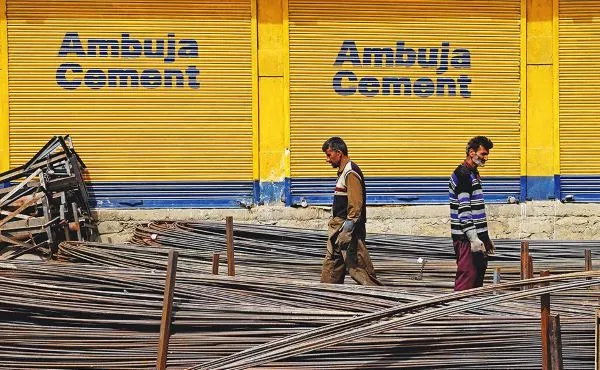Ambuja Cements Ltd, owned by the Adani Group, is set to invest Rs 2,500 crore in the construction of two cement carriers and eight clinker carriers. The company plans to place orders within the next fortnight, with the potential shipbuilders being Cochin Shipyard Ltd or Swan Defence and Heavy Industries Ltd, according to sources familiar with the deal.
The construction of a 38,500-tonne Handymax cement carrier is expected to cost around Rs 400 crore, while each 9,200-tonne clinker carrier will be priced at approximately Rs 200 crore. The final shipbuilding contract is anticipated to be completed within 15 days.
The clinker carriers, designed with a unique “odd-sized” specification, will feature a 30-metre beam, 4-metre draft, and 150-metre length. This design is set to maximize cargo capacity and is said to be a world-first for clinker carriers. Unlike conventional vessels, which typically carry 3,000 tonnes of clinkers per trip, the new clinker carriers will be able to carry up to 9,200 tonnes per trip.
In the event that Swan Defence and Heavy Industries secures the contract, this will mark its first commercial order since acquiring the bankrupt Pipavav shipyard in Gujarat under the Insolvency and Bankruptcy Code (IBC). The clinker carriers will be referred to as “Sanghimax” vessels, a name inspired by the ships’ ability to navigate the channel to Sanghi Industries Ltd’s integrated cement plant in Kutch, Gujarat. Sanghi Industries, part of Ambuja Cements and the Adani Group, has a production capacity of 6.1 million tonnes of cement and 6.6 million tonnes of clinker annually.
The clinker carriers’ design is tailored to navigate the “treacherous” shipping channel leading to Sanghi Industries’ port, where the water depth is relatively low. By constructing vessels with a longer design, Ambuja aims to maximize cargo carrying capacity while overcoming these logistical challenges.
The successful shipyard will receive an additional 14% subsidy on the contract price for the cement and clinker carriers, in line with the government’s ‘Shipbuilding Financial Assistance Scheme,’ which was approved by the Union Cabinet.
Ambuja Cements currently operates 11 dedicated cement carriers that transport cement from plants to consumption areas. The integration of ocean transportation is expected to provide significant cost benefits over road and rail transport.
Adani Group’s strategy of using a combination of ships and trucks aims to offer a uniquely integrated and competitive business model for cement distribution. Cement manufacturers typically rely on trains to transport bagged cement, which still requires last-mile connectivity through trucks. Cement carriers, however, can move large bulk quantities of cement, which are then bagged and distributed to customers via trucks.
The shift towards coastal transportation is expected to revolutionize the logistics dynamics of Adani’s cement business, making it more efficient and cost-effective.


